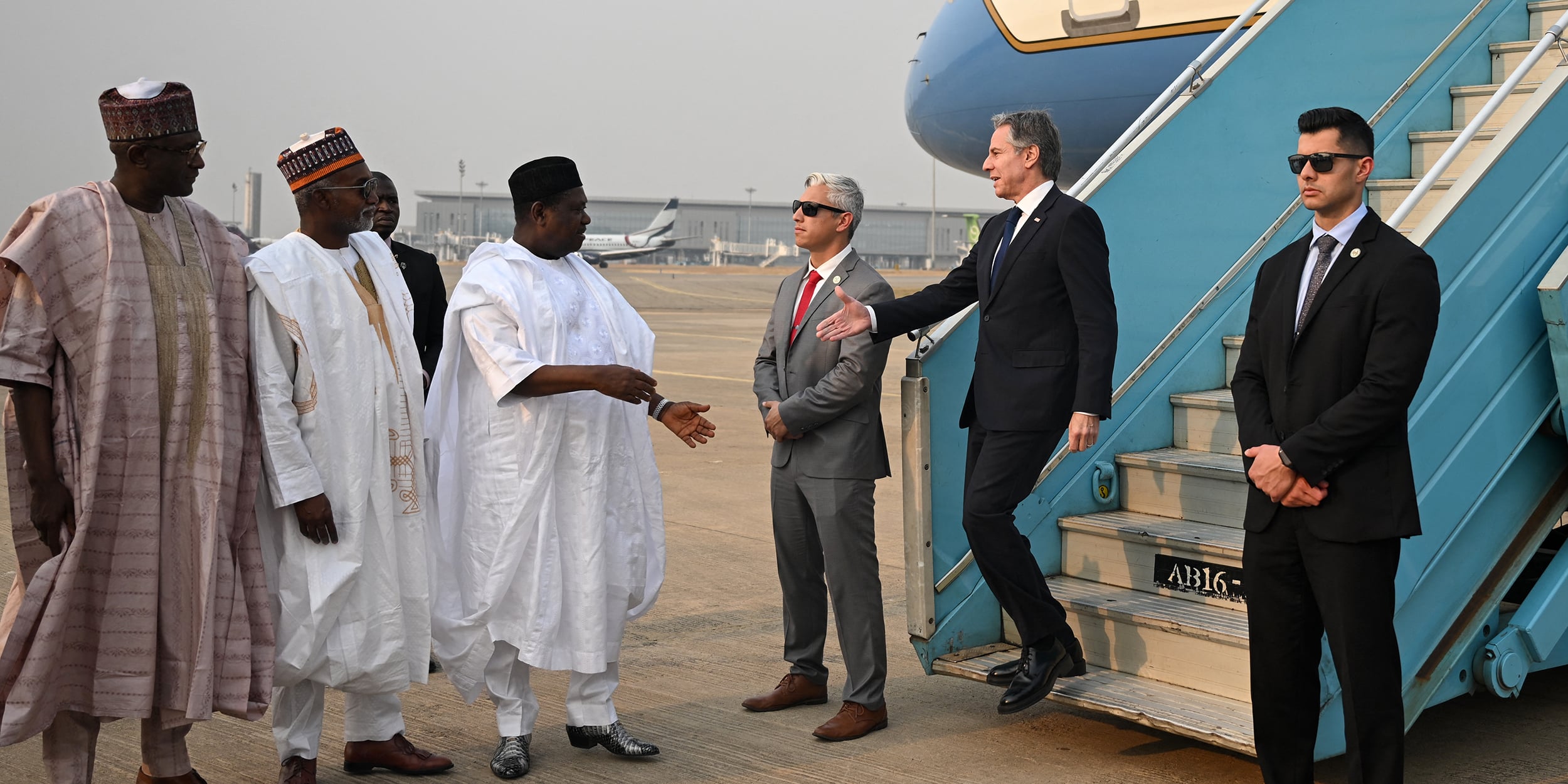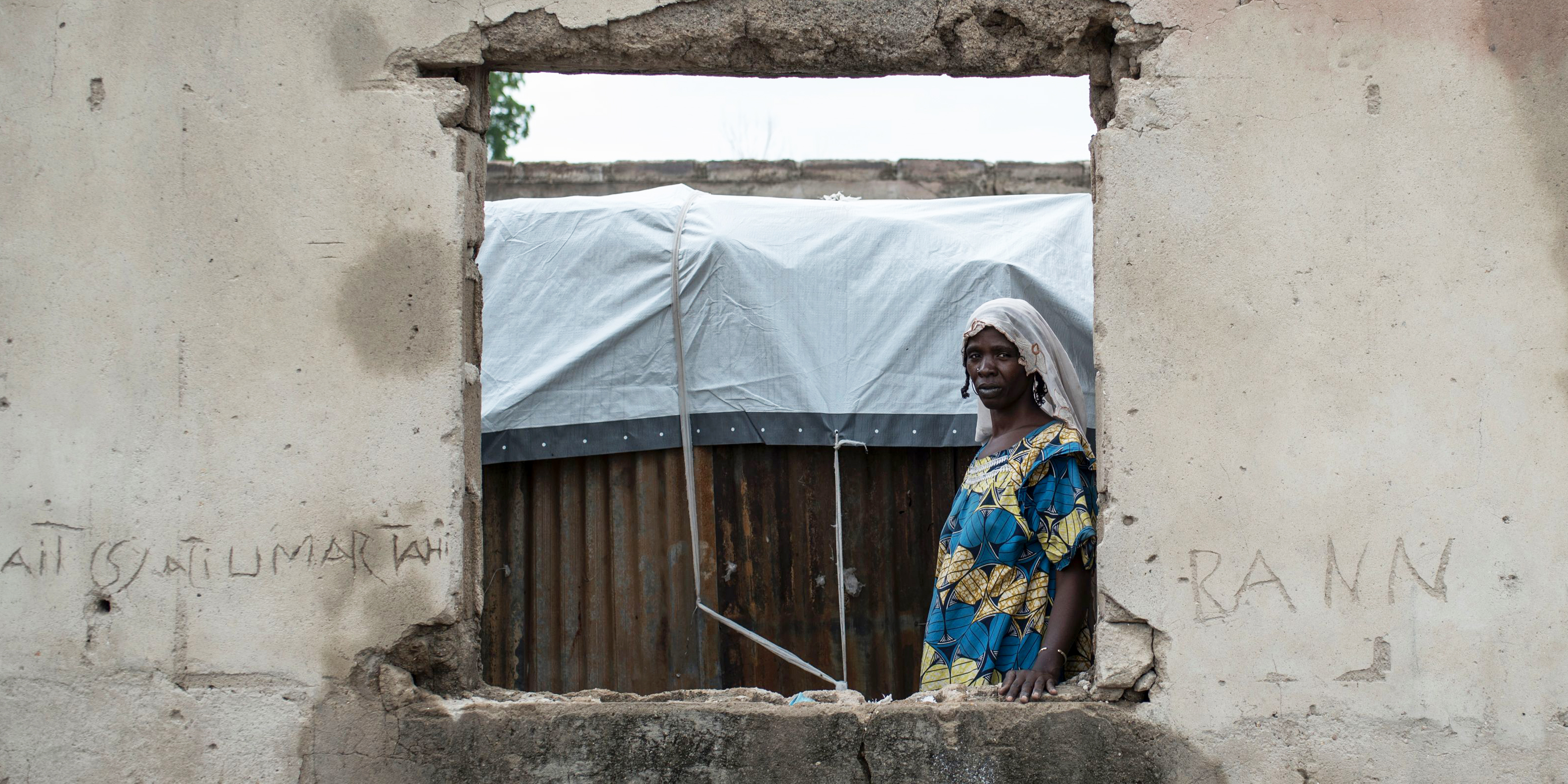Nigeria’s Military Gets Billions in U.S. Aid. On Christmas Day, It Bombed Its Own Civilians Again.
On Christmas day, a Nigerian military aircraft bombed two villages, killing at least 10 civilians and wounding many more.
The airstrike in Nigeria’s northwest is the latest in a long-running series of lethal errant attacks by the government of Nigeria, one of the United States’ closest allies in Africa and the recipient of billions of dollars in U.S. weaponry, including warplanes and bombs.
American lawmakers have called out the U.S. and Nigerian governments for the frequent noncombatant deaths, urging increased accountability, stronger protections for civilians, and limitations on American arms sales. Rep. Sara Jacobs, D-Calif., has been one of the leading voices, repeatedly calling on the Biden administration to, for instance, scuttle a nearly $1 billion attack helicopter deal with Nigeria.
“For millions of Nigerians, Christmas marks a special time for joy, festivities, and coming together with family and loved ones. It’s devastating that this year nearly a dozen families in Nigeria were mourning their loved ones instead of celebrating on Christmas Day,” Jacobs, a founding member of Congress’s Protection of Civilians in Conflict Caucus, told The Intercept. “I continue to be deeply concerned by the trend of civilian harm from Nigerian military operations. With the right guardrails in place, these tragedies can be prevented.”
The Nigerian military has a long history of killing civilians in its battle against militants and “bandits,” and has repeatedly denied responsibility for airstrikes that have killed innocent people. It has frequently been accused of covering up civilian deaths, as well, including running what a 2023 investigation by Nigeria’s Premium Times called “a systemic propaganda scheme to keep the atrocities of its troops under wraps.”
The U.S. has repeatedly raised the subject of civilian casualties with Nigeria’s government. Last year, in the wake of a December 2023 attack in Kaduna State that killed more than 120 civilians, U.S. Secretary of State Antony Blinken reportedly discussed the issue with Nigeria’s President Bola Tinubu.
When pressed by The Intercept following Blinken’s visit on what actions the State Department would take if Nigeria’s military continued to kill civilians, Assistant Secretary of State for African Affairs Molly Phee said at the time, “I’m not going to get into hypotheticals.”
Between 2000 and 2022, the U.S. provided, facilitated, or approved more than $2 billion in security aid, including weapons and equipment sales, to Nigeria, according to a report by Brown University’s Center for Human Rights and Humanitarian Studies and the Center for International Policy’s Security Assistance Monitor, a Washington think tank. This includes the delivery of 12 Super Tucano warplanes as part of a $593 million package, approved by the State Department in 2017, that also included bombs and rockets.
In those same years, hundreds of Nigerian airstrikes killed thousands of Nigerians. A 2017 attack on a displaced persons camp in Rann, Nigeria, killed more than 160 civilians, many of them children. A subsequent Intercept investigation revealed that the attack was referred to as an instance of “U.S.-Nigerian operations” in a formerly secret U.S. military document.
Since then, aerial attacks on civilians have been relentless. In September 2021, the Nigerian Air Force admitted that it attacked a village, killing 10 civilians and injuring another 20. That April, a Nigerian military helicopter reportedly launched indiscriminate attacks on homes, farms, and a school. A reported Nigerian airstrike on a village in neighboring Niger in February 2022 killed at least 12 civilians. Another attack in August 2022 left at least eight civilians dead. Witnesses and local officials said a December 2022 strike killed at least 64 people, including civilians. An attack in January 2023 killed 39 civilians and injured at least six others. And the December 2023 strike in Kaduna killed more than 120 villagers celebrating Maulud, the birthday of the Islamic prophet Muhammad, according to Amnesty International.
A 2023 Reuters analysis of data compiled by the Armed Conflict Location and Event Data Project, a U.S.-based armed violence monitoring group, found that more than 2,600 people were killed in 248 airstrikes outside the most active war zones in Nigeria during the previous five years. Most victims were identified as “communal militia,” a catchall category that includes local self-defense forces, criminal gangs, and so-called bandits.
Last April, a Nigerian airstrike on a village in the country’s northwest killed 33 civilians. In September, another airstrike in Kaduna killed 24 people.
The State Department did not answer questions about U.S. monitoring of American weapons transferred to Nigeria. For nine months, the department has also failed to provide a substantive reply about what actions would be (or have been) taken now that Nigeria’s continued killing of civilians is no longer a “hypothetical.”
Jacobs, the California representative, called for more accountability from America’s key West African ally. “I urge the Nigerian government to take concrete steps toward preventing harm and increasing transparency,” she said, “starting with the completion and public release of its investigation into this incident, a public release of the investigative report into the December 2023 Kaduna airstrike, and adoption and implementation of a civilian harm mitigation and response action plan.”
The post Nigeria’s Military Gets Billions in U.S. Aid. On Christmas Day, It Bombed Its Own Civilians Again. appeared first on The Intercept.


